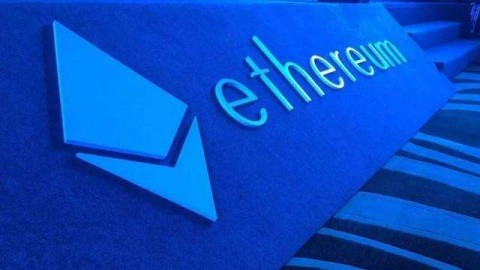比原项目仓库:
Github地址:https://github.com/Bytom/bytom
Gitee地址:https://gitee.com/BytomBlockchain/bytom
tx_signer
Java implementation of signing transaction offline to bytomd.
Pre
Get the source code
$ git clone https://github.com/Bytom/bytom.git $GOPATH/src/github.com/bytomgit checkout
$ git checkout devWhy need dev branch? Because you could call decode transaction api from dev branch and obtain tx_id and some inputs ids.
Build
$ cd $GOPATH/src/github.com/bytom
$ make bytomd # build bytomd
$ make bytomcli # build bytomcliWhen successfully building the project, the bytom and bytomcli binary should be present in cmd/bytomd and cmd/bytomcli directory, respectively.
Initialize
First of all, initialize the node:
$ cd ./cmd/bytomd
$ ./bytomd init --chain_id solonetlaunch
$ ./bytomd node --miningUsage
Build jar
first get source code
git clone https://github.com/successli/tx_signer.gitget jar package
$ mvn assembly:assembly -Dmaven.test.skip=trueYou can get a jar with dependencies, and you can use it in your project.
Test cases
Need 3 Parameters:
- Private Keys Array
- Template Object
- After call build transaction api return a Template json object. build transaction api
- use bytom java sdk return a Template object.
- Raw Transaction
- call decode raw-transaction api from dev branch. decode raw-transaction api
Call method:
// return a Template object signed offline basically.
Template result = signatures.generateSignatures(privates, template, rawTransaction);
// use result's raw_transaction call sign transaction api to build another data but not need password or private key.Single-key Example:
@Test
// 使用 SDK 来构造 Template 对象参数, 单签
public void testSignSingleKey() throws BytomException {
Client client = Client.generateClient();
String asset_id = "ffffffffffffffffffffffffffffffffffffffffffffffffffffffffffffffff";
String address = "sm1qvyus3s5d7jv782syuqe3qrh65fx23lgpzf33em";
// build transaction obtain a Template object
Template template = new Transaction.Builder()
.addAction(
new Transaction.Action.SpendFromAccount()
.setAccountId("0G0NLBNU00A02")
.setAssetId(asset_id)
.setAmount(40000000)
)
.addAction(
new Transaction.Action.SpendFromAccount()
.setAccountId("0G0NLBNU00A02")
.setAssetId(asset_id)
.setAmount(300000000)
)
.addAction(
new Transaction.Action.ControlWithAddress()
.setAddress(address)
.setAssetId(asset_id)
.setAmount(30000000)
).build(client);
logger.info("template: " + template.toJson());
// use Template object's raw_transaction id to decode raw_transaction obtain a RawTransaction object
RawTransaction decodedTx = RawTransaction.decode(client, template.rawTransaction);
logger.info("decodeTx: " + decodedTx.toJson());
// need a private key array
String[] privateKeys = new String[]{"10fdbc41a4d3b8e5a0f50dd3905c1660e7476d4db3dbd9454fa4347500a633531c487e8174ffc0cfa76c3be6833111a9b8cd94446e37a76ee18bb21a7d6ea66b"};
logger.info("private key:" + privateKeys[0]);
// call offline sign method to obtain a basic offline signed template
Signatures signatures = new SignaturesImpl();
Template basicSigned = signatures.generateSignatures(privateKeys, template, decodedTx);
logger.info("basic signed raw: " + basicSigned.toJson());
// call sign transaction api to calculate whole raw_transaction id
// sign password is None or another random String
Template result = new Transaction.SignerBuilder().sign(client,
basicSigned, "");
logger.info("result raw_transaction: " + result.toJson());
// success to submit transaction
}Multi-keys Example:
Need an account has two or more keys.
@Test
// 使用 SDK 来构造 Template 对象参数, 多签
public void testSignMultiKeys() throws BytomException {
Client client = Client.generateClient();
String asset_id = "ffffffffffffffffffffffffffffffffffffffffffffffffffffffffffffffff";
String address = "sm1qvyus3s5d7jv782syuqe3qrh65fx23lgpzf33em";
// build transaction obtain a Template object
// account 0G1RPP6OG0A06 has two keys
Template template = new Transaction.Builder()
.setTtl(10)
.addAction(
new Transaction.Action.SpendFromAccount()
.setAccountId("0G1RPP6OG0A06")
.setAssetId(asset_id)
.setAmount(40000000)
)
.addAction(
new Transaction.Action.SpendFromAccount()
.setAccountId("0G1RPP6OG0A06")
.setAssetId(asset_id)
.setAmount(300000000)
)
.addAction(
new Transaction.Action.ControlWithAddress()
.setAddress(address)
.setAssetId(asset_id)
.setAmount(30000000)
).build(client);
logger.info("template: " + template.toJson());
// use Template object's raw_transaction id to decode raw_transaction obtain a RawTransaction object
RawTransaction decodedTx = RawTransaction.decode(client, template.rawTransaction);
logger.info("decodeTx: " + decodedTx.toJson());
// need a private key array
String[] privateKeys = new String[]{"08bdbd6c22856c5747c930f64d0e5d58ded17c4473910c6c0c3f94e485833a436247976253c8e29e961041ad8dfad9309744255364323163837cbef2483b4f67",
"40c821f736f60805ad59b1fea158762fa6355e258601dfb49dda6f672092ae5adf072d5cab2ceaaa0d68dd3fe7fa04869d95afed8c20069f446a338576901e1b"};
logger.info("private key 1:" + privateKeys[0]);
logger.info("private key 2:" + privateKeys[1]);
// call offline sign method to obtain a basic offline signed template
Signatures signatures = new SignaturesImpl();
Template basicSigned = signatures.generateSignatures(privateKeys, template, decodedTx);
logger.info("basic signed raw: " + basicSigned.toJson());
// call sign transaction api to calculate whole raw_transaction id
// sign password is None or another random String
Template result = new Transaction.SignerBuilder().sign(client,
basicSigned, "");
logger.info("result raw_transaction: " + result.toJson());
// success to submit transaction
}Multi-keys and Multi-inputs Example:
@Test
// 使用 SDK 来构造 Template 对象参数, 多签, 多输入
public void testSignMultiKeysMultiInputs() throws BytomException {
Client client = Client.generateClient();
String asset_id = "ffffffffffffffffffffffffffffffffffffffffffffffffffffffffffffffff";
String address = "sm1qvyus3s5d7jv782syuqe3qrh65fx23lgpzf33em";
// build transaction obtain a Template object
Template template = new Transaction.Builder()
.setTtl(10)
// 1 input
.addAction(
new Transaction.Action.SpendFromAccount()
.setAccountId("0G1RPP6OG0A06") // Multi-keys account
.setAssetId(asset_id)
.setAmount(40000000)
)
.addAction(
new Transaction.Action.SpendFromAccount()
.setAccountId("0G1RPP6OG0A06")
.setAssetId(asset_id)
.setAmount(300000000)
) // 2 input
.addAction(
new Transaction.Action.SpendFromAccount()
.setAccountId("0G1Q6V1P00A02") // Multi-keys account
.setAssetId(asset_id)
.setAmount(40000000)
)
.addAction(
new Transaction.Action.SpendFromAccount()
.setAccountId("0G1Q6V1P00A02")
.setAssetId(asset_id)
.setAmount(300000000)
)
.addAction(
new Transaction.Action.ControlWithAddress()
.setAddress(address)
.setAssetId(asset_id)
.setAmount(60000000)
).build(client);
logger.info("template: " + template.toJson());
// use Template object's raw_transaction id to decode raw_transaction obtain a RawTransaction object
RawTransaction decodedTx = RawTransaction.decode(client, template.rawTransaction);
logger.info("decodeTx: " + decodedTx.toJson());
// need a private key array
String[] privateKeys = new String[]{"08bdbd6c22856c5747c930f64d0e5d58ded17c4473910c6c0c3f94e485833a436247976253c8e29e961041ad8dfad9309744255364323163837cbef2483b4f67",
"40c821f736f60805ad59b1fea158762fa6355e258601dfb49dda6f672092ae5adf072d5cab2ceaaa0d68dd3fe7fa04869d95afed8c20069f446a338576901e1b",
"08bdbd6c22856c5747c930f64d0e5d58ded17c4473910c6c0c3f94e485833a436247976253c8e29e961041ad8dfad9309744255364323163837cbef2483b4f67"};
logger.info("private key 1:" + privateKeys[0]);
logger.info("private key 2:" + privateKeys[1]);
// call offline sign method to obtain a basic offline signed template
Signatures signatures = new SignaturesImpl();
Template basicSigned = signatures.generateSignatures(privateKeys, template, decodedTx);
logger.info("basic signed raw: " + basicSigned.toJson());
// call sign transaction api to calculate whole raw_transaction id
// sign password is None or another random String
Template result = new Transaction.SignerBuilder().sign(client,
basicSigned, "");
logger.info("result raw_transaction: " + result.toJson());
// success to submit transaction
}- 还没有人评论,欢迎说说您的想法!




 客服
客服


